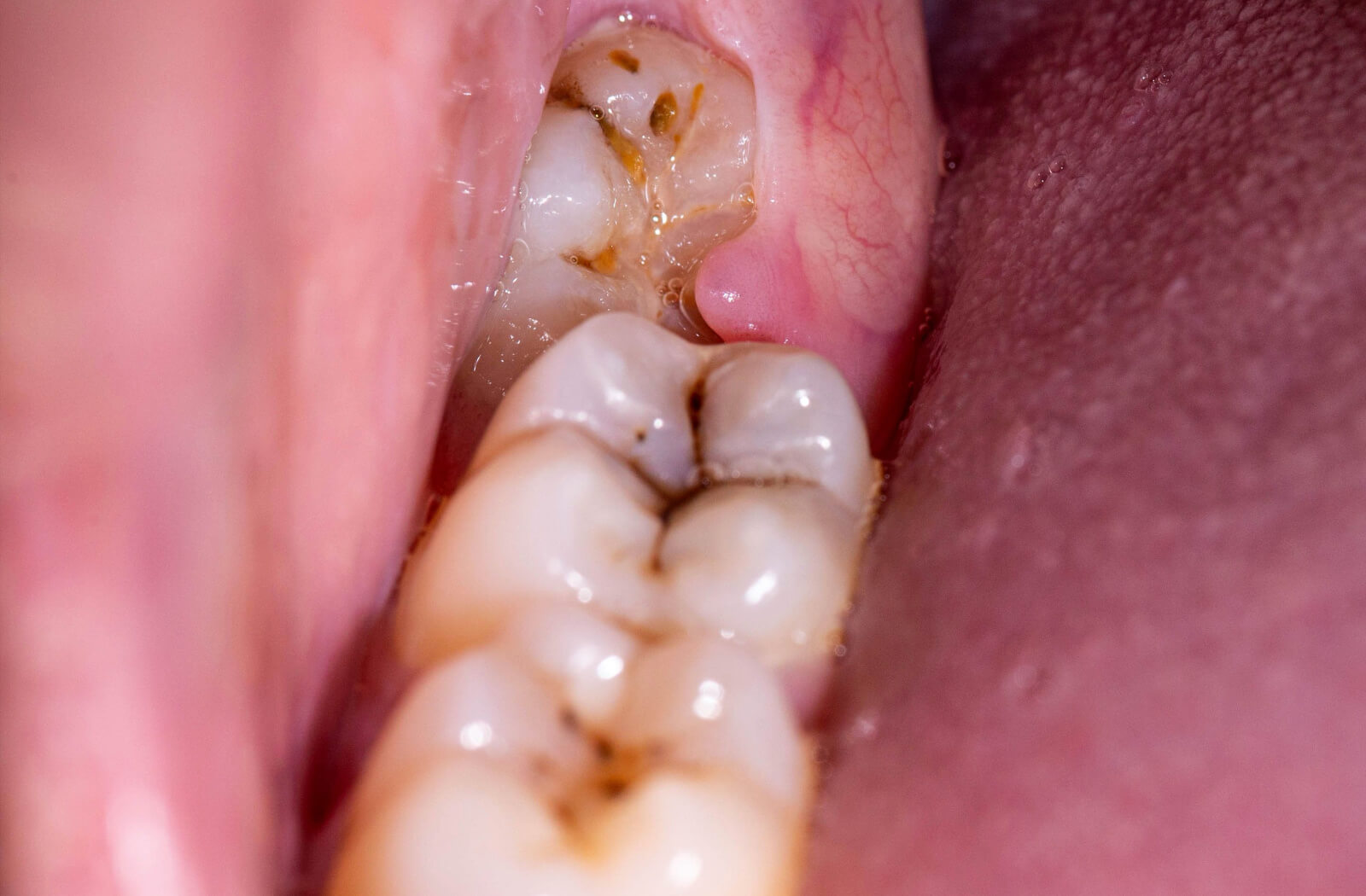Most people deal with a cavity at some point in their lives. They develop when a small part of the tooth develops a problem due to bacterial buildup, eventually leading to tooth decay. While they can be prevented with proper oral care, it can be difficult to tell if you’re developing a cavity. What does a cavity look like?
You can tell if you’re developing a cavity if there’s visible discolouration on the surface of a tooth. And if there’s any irritation, discomfort, or pain, you should visit your dentist for treatment so that the cavity doesn’t become worse.
What Are Cavities?
Cavities, also known as dental caries, are small holes or openings that form on the surface of a tooth. They’re caused by the breakdown of tooth enamel, the hard outer layer that protects the tooth.
This enamel protects the inner, more sensitive parts of the tooth. But it isn’t invincible, and wear and tear can cause it to become weaker. Eventually, a small gap develops, where bacteria thrive. They begin to spread and multiply and can make this gap larger and deeper.
If left unaddressed for too long, this can spread to the roots of the tooth, which may require the entire tooth to be removed to avoid developing further problems.
Why Do Cavities Develop?
When bacteria in the mouth combine with food particles and saliva, they form a sticky film called plaque. That’s the yellow-brown coating that can build up on the teeth. This plaque produces acid when it comes into contact with sugars from food and drinks, which starts to wear down the enamel.
Cavities typically develop due to a mix of poor oral hygiene and an unhealthy diet. The bacteria in your mouth love to feed on sugars and starches, leaving the acid behind as a byproduct. This is why regular brushing and oral care is so important! If you stay on top of your hygiene, these bacteria don’t get the chance to continuously produce the acid that harms your teeth.
How Can You Tell if You Have a Cavity?
But when these bacteria, plaque, and acids start to build up, how can you tell? It typically begins with some level of discolouration on the surface of one—or more—of your teeth.
Some other common signs include:
- Toothaches
- Sensitivity to hot, cold, or sweet foods and drinks
- Visible holes or pits on the surface of the tooth
- Pain when biting down or chewing
- Pus or swelling around the affected tooth
If you notice any severe pain in your teeth, it’s time to schedule an appointment with your dentist so you can get your cavity treated.

How Do You Treat Cavities?
There are a few different ways to treat a cavity. Treatment greatly depends on a few things, like where the cavity is and the severity of your tooth decay. Typically, the dentist will recommend one of four things:
- A filling, for minor levels of decay. The decayed tissue is removed and the cavity is sealed using a suitable material.
- A dental crown, where the decayed portion of the tooth is removed. Then, a crown, a sort of cap for the tooth, is installed to prevent further decay and bring strength back to the remaining structure.
- A root canal, for more severe levels of decay. The dentist removes all of the infected tissue from the tooth, then sterilizes and cleans the tooth.
- A tooth extraction. This is rarely used and is reserved for extreme cases of tooth decay. This treatment is more invasive than the others and often requires the entire tooth and root to be removed.
Because treatment can vary, it’s a lot easier to try and avoid cavities in the first place!
Can You Avoid Cavities?
While cavities can be a common problem, they can be prevented with proper oral care. Here are some tips to help you avoid cavities:
- Brush your teeth at least twice a day with fluoride toothpaste.
- Floss daily to remove plaque and food particles from between your teeth.
- Limit your consumption of sugary and acidic foods and drinks.
- Consider using a fluoride mouthwash to strengthen your tooth enamel.
- Regularly drink water to flush away the bacteria in your mouth.
And don’t forget to regularly visit your dentist for checkups and cleanings!
What to Do if You Get a Cavity
If you suspect that you have a cavity, don’t panic. Schedule an appointment with our team at Belman Dental Centre to get it treated. Remember, early intervention makes a big difference, and taking care of your teeth is essential. So request an appointment with our team, and let us take care of your smile.


